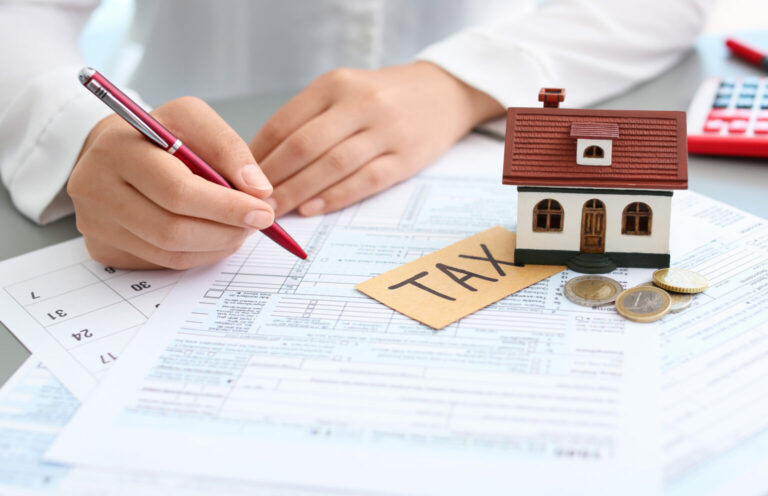
A 1031 exchange, also known as a like-kind exchange, is a powerful tool for deferring capital gains taxes on the sale of investment real estate. Named after Section 1031 of the Internal Revenue Code, a 1031 exchange allows real estate investors to defer paying capital gains taxes when they sell one investment property and reinvest the proceeds into another like-kind property of equal or greater value. The key advantage of a 1031 exchange is its ability to preserve capital for reinvestment, enabling investors to grow their portfolios more effectively.

Before 2016, 1031 exchanges were not limited to real estate. Investors could use this mechanism to defer taxes on the exchange of other assets, such as artwork, collectibles, and business equipment. This is where the term “like kind exchange” came into play. However, the Tax Cuts and Jobs Act of 2017 restricted 1031 exchanges exclusively to real estate interests, eliminating its use for personal property and other assets. This legislative change significantly narrowed the scope of 1031 exchanges but maintained its viability for real estate investors.

While 1031 exchanges are primarily associated with investment properties, there are specific rules for properties that have been used as principal residences, vacation homes, or for mixed purposes. This is especially important for properties in resort areas like Breckenridge, Keystone and Vail, where many properties are used as vacation homes or short term rentals.
When sellers ask, “Does my property qualify for a 1031 Exchange,” the answer is always the same… It depends.
There are specific rules and requirements to be followed during such a transaction. Lets take a look:
Vacation homes can qualify for a 1031 exchange if they meet the IRS’s criteria outlined in Revenue Procedure 2008-16. To qualify:
Replacement properties acquired through a 1031 exchange must also meet these criteria for at least 24 months following the exchange.
A principal residence can be converted into an investment property eligible for a 1031 exchange. However, the property must be rented at fair market value for at least 14 days per year and personal use must be limited to no more than 14 days or 10% of the rental period. Additionally, the property must be held as an investment for at least two years prior to the exchange.
Taxpayers may also benefit from Section 121 of the Internal Revenue Code, which allows an exclusion of up to $250,000 (single) or $500,000 (married) in capital gains for principal residences used for at least two of the five years preceding the sale. If the gain exceeds these limits, a 1031 exchange can be used to defer the remaining amount.
Many owners convert personal property into rentals in order to rent to family members. It is important to note that there are rules around renting to family members such as renting at market rate and it must be for use as a primary residence.
After acquiring a property through a 1031 exchange, investors may eventually convert it into their personal residence. Who doesn’t dream of buying an investment property in a resort area such as Breckenridge or Vail, only to eventually retire and live full time in paradise.
When you sell the converted property you could then qualify for a Section 121 exclusion or a portion of this exclusion. The amount of time that the property was used as an investment and the amount of time it was used as a primary residence will affect which exclusion you may use upon sale.
Properties can have both personal and investment components at the same time, such as a home with a rental unit. Such properties can benefit from a combination of Section 121 and 1031 deferrals. Proper accounting is crucial to ensure that credits, such as prorated rent and security deposits, are attributed to the exchange-eligible portion of the property.

Navigating a 1031 exchange requires careful planning and strict adherence to IRS guidelines. Here are key steps to consider:
A 1031 exchange remains a valuable strategy for real estate investors looking to defer taxes and reinvest in their real estate portfolios. While the rules have become more stringent since 2016, opportunities still exist for properties with mixed use or those transitioning between personal and investment purposes. By understanding the nuances of these regulations and consulting with real estate and 1031 Exchange professionals, investors can maximize the benefits of a 1031 exchange while staying compliant with IRS requirements.
Navigating 1031 exchanges for vacation homes, primary residences, and mixed-use properties can be complex, but understanding the IRS guidelines is crucial for maximizing tax deferral benefits.
If you are interested in learning more about 1031s, how they can benefit you, and options for replacement investments, we will be hosting an event on February 13, 2025 on Advanced 1031 Exchange topics and Exit Strategies for Real Estate Investors! Give us a call or shoot us an email if you’re interested in getting involved! Here is a link for info on our event!

Disclaimer: All information contained in this web site is deemed reliable but not guaranteed. All properties are subject to prior sale, change or withdrawal notice. COMtnRealty.com believes all information to be correct but assumes no legal responsibility for accuracy.